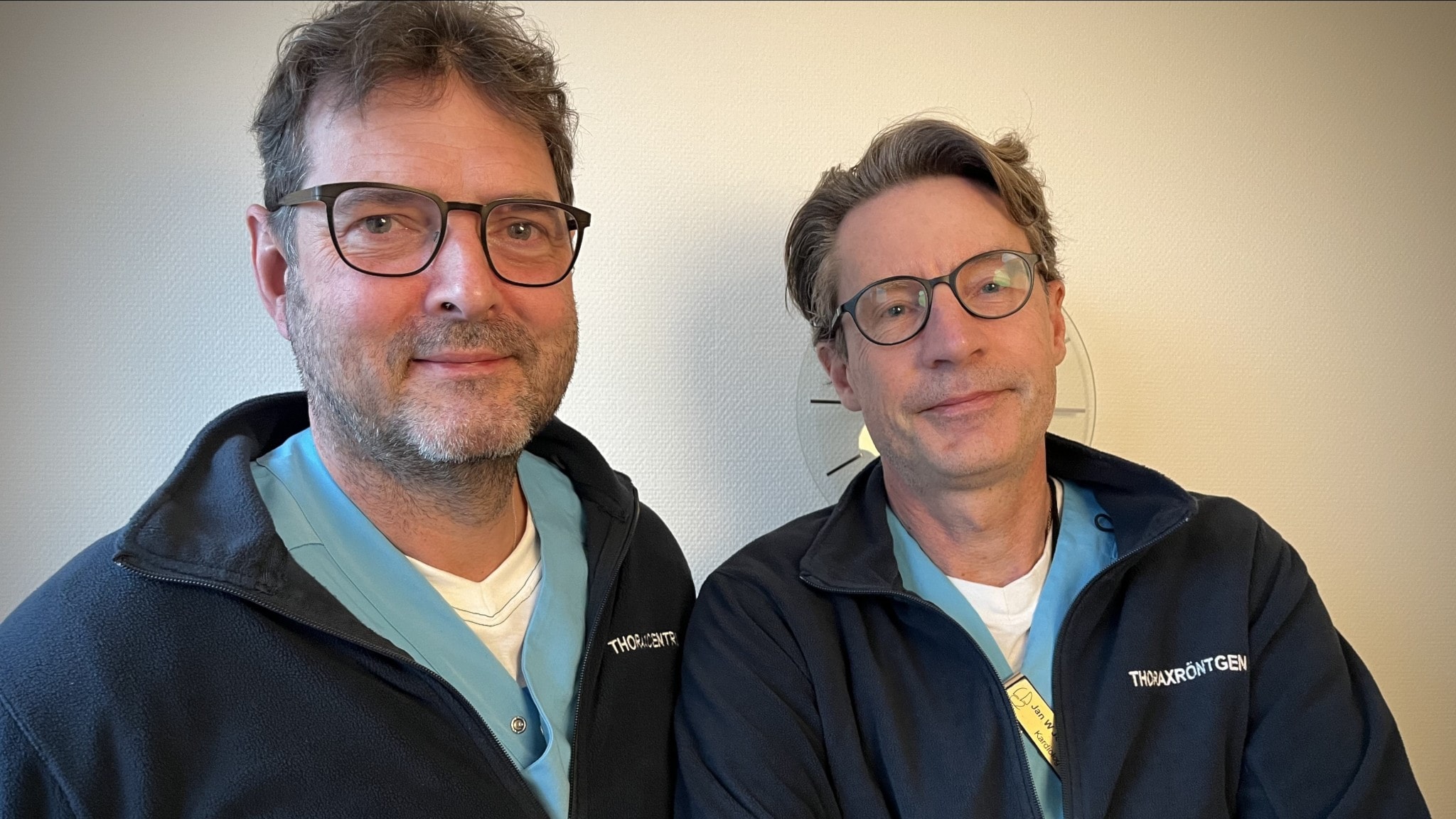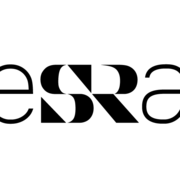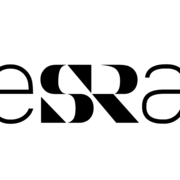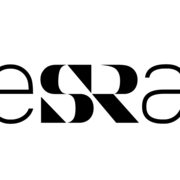Swedish news, week 3 in 2025 (free preview)

Welcome to this week's overview of the Swedish news by some immigrant who lives in Norrland.
Politics and laws
Here are the hottest topics as per two podcasts, one from Swedish public service and one from the biggest morning newspaper (SverigesRadio's Det politiska spelet and Dagens Nyheter's Älskade politik, owned by Bonnier):
Riksdagen (the parliament) has had the first debate of the year. Big topics:
- should it be possible to take away the Swedish citizenship from someone who has it?
- should the right for abortion be one of grundslagen (the special laws that are specifically designed to be harder to change: it should be voted through twice with an election in between)?
I've watched the debate — it's up on SVT Play under the Forum program. Since it was a live event, the quality of the subtitles is lower than usual (“nocida augustar” instead of “Nooshi Dadgostar” and “baalago” for “Mar-a-Lago”). So for those who don't really understand Swedish yet, there's a rough (more literal than literary) translation to English below. I've only written down the opening statements of the parties, but that's one hour of talking, so the text is very long. Only for the most curious people:
The English translation of the parliament debate's opening statements (long and rough)
The party leaders gave their opening statements in the order of the number of their parliament seats (after the prime minister's party, who went first despite having the third-largest number of seats). I stopped taking notes if they were repeating themselves too literally, but otherwise tried to stay as close to their text as I could. To liven up the wall of text, I bolded the key words to give a high-level overview of the topics each party wanted to bring up.
Ulf Kristersson, M: we have put inflation under control, lowered taxes, and now the interest rates are also going down. This can save thousands of SEK per month for a normal family with children. The asylum immigration is at its lowest since 1985, the crime is going down, the police is clearing more cases. It's important who's ruling Sweden. The most important question for Sweden is internal and external security. We stand with Ukraine as long as it's needed. Sweden is not in a war but not at peace either, there are hybrid attacks of various kinds. We're allied with others, we're investing slightly over NATO's 2% requirement. Internally, we continue to fight crime. We've hardened the punishment and extended possibilities like interception of communication and taking expensive things away from criminals (he got an applause here which he redirected to the police — Lena). This year we're making it easier to do video surveillance, we remove secrecy between the school, social services, and the police, we make it easier to use DNA from relatives to fight crime. And we're taking away the passports (Swedish citizenship — Lena) from those who have double citizenship and pose a systemic threat to Sweden (another applause). We get things done and we're ready to do what's needed against the crime, unlike the parties on the left. We're all united and make fantastic reforms to make Sweden richer and safer, while the parties on the left fight about all the big questions like policy on security, energy, taxes, and crime. Next year it's time for the Swedish people to make a choice again (val is both ‘choice’ and ‘election’ in Swedish — Lena).
Magdalena Andersson, S: dark clouds tighten in the world around us, Netanyahu's war in Gaza has passed all boundaries, the hostages aren't free, and Ukraine continues Russia's brutal war. Tensions rise closer to us too, with cable cuts and Russia's shadow fleet. At the same time, we live in economically troubled times: poor economy state in our country is deep, the growth forecasts have been revised to lower, unemployment is increasing, youth unemployment is whole 25%, opening new businesses is at the lowest level since the financial crisis, bankrupcies are higher than during both the financial crisis and the pandemic, more and more people end up at Kronofogden (The Enforcement Authority, works with unpaid debts), normal families struggle to make ends meet, and the government's own numbers show there are more people depending on (social welfare) benefits to support themselves. This is the bokslut (financial statement at the end of the year) for half of the government's office term. The government doesn't have a plan for Swedish growth and prioritizes wrongly. When normal wage earners and hard-pressed families with children need some relief, the government and SD choose to use tens of billions from the budget to lower the taxes for the richest. And when the unemployment is on the rise, they cut down in the labor market policy and make it harder for people to get additional education, find a new job, and get a livelihood. When the need for new and cheap electricity and strong infrastructure grew, they chose to stop the building of the offshore wind power and of the new main lines. And when construction started to sink, they chose to take away the investment support for the construction of new housing. In three budgets in a row, the idea-poor policy of Kristersson and Åkesson was presented. It hasn't worked. And it's the Swedish people who bear the costs. (She then mentions particular professions and tells how they go to jobs in the morning to be met by the closed gates of bankrupted employers). Sweden got more poor, and decades of investment have gone up in flames; we could've been at the forefront of the green transition and had the growth, the jobs, higher salaries, and secured financing of the social welfare. Tidöavtalet doesn't have economic ideas. There's no plan. Sweden needs a new direction. We should invest in that which makes Sweden rich and safe. (1) More housing, trains that go on time, education, research, green transition, new industries. Just like we've always done it. And our labor market policy should be more active, so that more people go from being on benefits to real jobs with good conditions and salaries one can live on. (2) Fair economic policy which puts normal Swedes first. Fair tax cuts for normal Swedes, not big tax cuts to the richest. Increased barnbidrag (child benefit of 1250 SEK which hasn't been revised for years — Lena), increased housing benefit for retired people, increased study grants, policy for real wage growth. And we need to secure our welfare. Recalculate the resources accounting for the inflation, so that the school, the healthcare, and the elderly care are there and work in the whole country. (3) The government is not following through on the long-standing agreements, but the country needs stable conditions in the energy and industry policy, so that more companies dare to establish operations in Sweden and more Swedes get salaries one can live on.
Jimmie Åkesson, SD: last week we got news that soon we'll break the ground for the new research reactor in Oskarhamn. The ambition is to research the future's nuclear reactors. From the times when S introduced a so called thinking ban that forbade research and development for building new nuclear power, now 40 years later we're moving forward, slowly but surely. We and the government are seeing to building new nuclear power, but unfortunately reaching this goal is still many years ahead. Until then we're stuck with the destroyed system of power supply that the opposition has left after itself. The system which gives us electricity at a reasonable price if the wind blows, but not too much, and if it's not too cold. There are many who don't want to talk about their responsibility for this, but we had a system which was almost world-unique stable, almost fossil-free and affordable for businesses and people. Now they don't want to talk about having destroyed it and say in the debate that they've always been for nuclear power. I don't care what other parties want. Why should we silence such a failure which they don't even have the understanding to apologize for just because time has passed? This logic reminds of other monumental questions where old parties have failed, for example the migration policy and the fantastic enriching multiculturalism. They've spent 30, 40 years forcing this system upon us Swedes. And then when it breaks down, they say they didn't know, didn't see it coming and were naïve, but now they know better. It's way easier to tear down than rebuild something that works. Is S going to still say that all kinds of electrical power are needed if the they are in charge after another election? Or are they going to change their mind again? Will S dance to MP's and maybe V's tune again and destroy? S having power is a terrifying example of what happens when there's a lack of both joint will and good policy. The red thread is that nothing happens, or if it happens then it's usually something bad. Nothing happened when they had to understand the situation of the crime victims, nothing happened about provocatively low punishment and general undemandingness in society, nothing happened about restoring discipline and order in the Swedish school. Nothing happened because they couldn't and didn't want to, they didn't have a joint idea. Our collaboration with the government rests on different grounds. We want and can and we do. It's not unknown that SD is more straight to the point and wants to go a bit farther than other parties, a little before its time. But our collaboration can take it because we agree on the basics and pull in the same direction in the most important questions for our country and the people who live here. Aside of substantive policy issues, there's a higher goal of cohesion, to make more people feel included in building of Sweden.
Nooshi Dadgostar, V: Sweden is still a good, strong country. From being one of the poorest in Europe, over just some decades, it went to being one of the world's richest. We built up a stong welfare which evened out class gaps. Swedish welfare system has equipped us with knowledge, self-confidence, and dignity; created the conditions for successful companies. But now, back to the future, and it's about priorities. In the last 30 years, different governments, both M and S, have been dismantling the important building blocks in our country, things which made us strong. Sweden's growth is one of the lowest in Europe, we have mass unemployment, record number of bankrupcies. V saw this coming and warned about this: that neoliberal project is going to fail. It was a terrible idea to deregulate the world's best and most egalitarian school. Of course the situation was going to be exploited by the oseriösa (literally — non-serious, but here it means something like ‘shady’) money interests. The result is segregation, violence in schools, weak school results. V warned early when the governments again and again chose to pull out the state from big parts of Sweden: privatize Arbetsförmedlingen (Swedish public employment service), pharmacies, railways, car inspections. It wasn't us who abolished the state housing policy, we said it was going to result in housing shortage and rundown areas, something we're paying a high price for today in all possible ways. Way too little housing is being built, and young become adults before they manage to move out from their parents. We demanded many years ago to stop shady actors from earning money on children at risk in HVB-homes (housing with support/care/treatment for children, youth, families, where they work with e.g. drug abuse or support unaccompanied minors — Lena). We warned that gang criminals will be able to get in like that and systematically recruit the youngsters to organized crime. This is exactly what's happening today, but we got downvoted by SD (sparce but enthusiastic applause). This was not just naivety, the decision was made with open eyes. To sell out healthcare, school, care, and much more to those without the democratic responsibility — this has corrupted our country. The Swedish governments have for years sold out the democratic control, and the criminals have taken over. The current government and SD continue in the same way. We need a real change. We need to stop the robbing of Sweden's families. We need to get the prices down so that children don't go to bed with rumbling stomachs, don't we, Ebba Busch who claimed she'd stop this and now has increased the food prices with almost 30% after she became a minister? Young people shouldn't have to live with their parents until they're 30, 35, therefore it was wrong to take away the investment aid, wasn't it, Jimmie Åkesson, who chose to do this? Food, rent, and electricity: prices have gone up too much and they must go down, it destroys families' economies. How can those who work with concrete and wood be unemployed in the Sweden today, when the need is so high? There's half a million of unemployed people. We need to take back control over the privatized school and privatized healthcare, raise pensions, strengthen a-kassa (unemployment insurance), make the health insurance work. We need to get Sweden to function, invest in Sweden, in all of us who live here. It's not the unemployment that should grow, it's the businesses. We need to stand up in competition with the US and China, we need growth that decreases emissions, not the blue-brown downgrowth that increases them (blue-brown here means the collaboration between the right-wing parties in the government, for those parties the color is blue, and SD, which is associated with Nazi's brown — Lena). We're going to get there, but we do it with a new, left-wing government.
Muharrem Demirok, C: it feels nice to stand here in front of colleagues again after the christmas holidays, but it also feels heavy with responsibility. When we enter 2025 it's obvious that Sweden is not feeling that well. The cohesion is stuck, and more and more people see that politicians don't have answers to the problems they face in their daily lives. Many are at risk to lose faith in the future if we don't act on the trust we received. When we look ahead to the rest of the year, to the election, the next mandate period, there are some societal problems that stick out more than others. Let's start at the school. A good school gives every student an opportunity to succeed in life regardless of where one lives and which family background one has. But this is not how it looks like in Sweden today. Instead we have a school system that knocks out tens of thousands of students every year. The students who need support get too little of it, and too late. Violence and insecurity have been allowed to spread and the knowledge gaps increase. The government of course doesn't solely bear responsibility for this. It has been allowed to grow during way too many years. But the government is showing an inability to solve these problems. Same thing with jobs. It's not a coincidence that Sweden has EU's third-highest unemployment, or that a record number of Swedish companies went bankrupt in 2024. Sweden should be the world's best country to live in (he said livsresor which is a more poetic way to describe life, kind of like “life journey” — Lena), where everyone who puts in the effort can work themselves to a better life for themselves and their families. But this requires liberal reforms and political courage, something that this government apparently lacks. Another area that sticks out is the enormous failure towards the rural areas. Healthcare, school, and other care are significantly worse on the countryside at the same time as people there pay a much higher tax. This is an entirely unacceptable injustice in our country that is allowed to continue. And the government's answer to that was to move more power away from healthcare and school to this very district in Stockholm. All the reforms that could've made a difference are conspicuously absent, just as the money that actually could've been life-changing. Many in this chamber have talked about crime for a year, but let's speak clearly: it's about mafia, Swedish mafia. And Swedish mafia must be defeated. The criminal structures have not only eaten themselves into the big parts of the society. They finance their acts of violence with scams, including against our elder people. Home in Östergötland, the scammers conned 50 elder people out of their life savings just in this year's first ten days. The government does a lot, but if we want to defeat the mafia for real, we must also seize what drives the mafia, namely the money. It's only when the blood circulation is cut off, the head can die. On top of all of this, our time's biggest question lies: the climate. The only way forward to decrease the emissions is green growth. We don't have to and we can't choose between the economic development and the climate, because with the right policy we can do it cheaper, faster, and simpler to make the transition, but the government is currently doing the exact opposite, with devastating results. The emissions are on the rise while the economy worsens. This analysis of these five questions is the basis of what C is going to continue drive forward during this mandate period. These are the analyses that people are talking about at the kitchen table, that are noticeable in our daily lives. Based on these analyses, the conclusion is clear: Sweden needs a new government, it's obvious that the one we have now doesn't manage to solve Sweden's problems. The next government must solve these five problems. This is also C's clear message to those who seek our support to build a government. And it's also clear that Sweden can't afford another four years without a warm green liberal policy which sees the entire country's needs.
Ebba Busch, KD: slowly but surely, it's going to get cheaper to be Swedish. Magdalena Andersson and Nooshi Dadgostar, it takes time to clean up after a red-red-green government. We took over when the inflation was almost 10%, now it's under 2%. The inflation, the worst enemy of all the hard-working families with children. When we took over, we had fuel prices at 28 SEK, actively driven by policy, now the prices are at 18 SEK. Nooshi Dadgostar, raise your voice as you want, but actions speak way louder than your words, and this government delivers bit by bit for the sake of the Swedish people. We have just begun. Sweden which is our home should get safer and richer, it should be possible to trust in Sweden. We KD campaigned on the promise that the healthcare should be trustworthy. It's time to take away the responsibility from the regions and let the state take over. KD is unfortunately the only party fighting for this. An inquiry about the state control of healthcare is finally in progress. Year after year we have seen examples how the regions are infinitely lagging in their responsibility. It's been talked about benchmarking and best practice, that they should learn from each other, but every region seems to think it knows best. The healthcare's digital desert-wandering, it just continues, latest manifesting in Västra Götaland and Skåne. And instead of offering digital services that could increase accessibility in the healthcare chain, they are portrayed as a threat. Your postal code remains the deciding factor for how long you will illegally wait on the care you have the right to. And this is the best proof that the laws guaranteeing your rights in healthcare are no longer enough. Not when 21 independent regions fail at what the law and decency demand. The inquiry has the task of producing a feasible proposal of how healthcare can become the state's responsibility. But if one listens to the chatter in the region-Sweden, it sounds more like the inquiry is free to hold onto the way things are. But let me be very clear, KD is not a party that's going to accept half-measures or proposals marked with disinterest or lack of the insight of the disease. Why should the patients and the staff be caught in the middle in this country? Swedish care needs to be changed fundamentally, making it state-controlled it the way forward, we should stop mending and fixing in a system which is beyond saving (applause; Busch thanked “dear christian democrats” and said “great that we have the Swedish people with us outside of this chamber”). One of the grunlagskommitténs (constitutional committee's) proposals is about citizenship. The inquiry has stopped at proposing to take away the citizenship from people who commit crimes such as terrorism and espionage, it's not enough. It should obviously also be possible to take away the citizenship from those who commit serious and system-threatening crime, i.e. gang criminals. But that's something that the inquiry doesn't propose, and this failure is caused by the opposition. We have known gang leaders like Kurdiska Räven who control their crime syndicate from abroad, they should not be able to call Sweden their home anymore. You should be able to have trust in Sweden.
Daniel Helldén, MP: a violent world around us puts higher requirements on leadership in Sweden. Putin's invasion war continues grinding down a generation in Ukraine. We welcome the broad unity in the parliament behind Sweden's support of Ukraine. At the same time, Sweden needs to break the dependency on fossil fuel. It contributes to maintaining the global demand of oil and gas which finances Russia's war. The government chooses instead to deepen the fossil-dependency with massive subsidies. We hear now that ceasefire is near, but we haven't yet seen the end of Netanyahu's killings in Gaza which harvests tens of thousands civilian victims. The terrorist organization Hamas hasn't let the hostages go either. What is Sweden's government doing in this situation? Bows to Israel and suffocates the support to UNRWA, the UN organisation that provides basically all the humanitarian help to Gaza. This is spineless. The climate crisis also makes up a threat of violence. We see the fires swallowing block after block of houses in Los Angeles. We see the same violent consequences in the masses of water that destroy people's houses in Spain, Poland, as well as Gävle and Åre. 2024 became the year when we passed the 1.5°C warming, and the UN raised the alarm that we're on the way to the nightmare scenario with 3°. We're on the way to set off what's called the nature's retaliatory violence against the humans. Nonetheless, the Tidö government acts as if the climate policy would be the bigger threat to the people than the climate change. They expose Sweden's population to unacceptable risks. More than a half of the mandate period has gone by, and the result is that Tidö government has increased the emissions and slowed down the transition. This is shown by both the finanspolitiska rådet (fiscal policy council) and the klimatpolitiska rådet (climate policy council), as well as by stats on emissions and sales of electric cars. Instead of helping the households to break dependence on fossil fuels, the government has poured the money into fossil subsidies. The result is that Sweden not only belongs to the minority of the EU countries that increase their emissions, but is the country that increases its emissions the most. EU's climate policy builds on the member countries implementing their commitments. When the government carelessly misses our climate goals, it's not only Sweden's transition that's damaged, but entire Europe's. It threatens as an extension the transition of the entire world. EU's role as the global driver of the climate work is central if EU's members don't lower their emissions, why should China do what it promised? Additionally, the government is pushing for dismantle EU's legislation on increasing the climate benefits of forests. If we in don't bind more CO2 in European forests, why should Brazil do it in Amazonian forests? The climat change is a threat, but the green transition is the best chance to build a stronger, safer, and more free society. MP wants to see a fair green transition in the whole country, and we have hundreds of political proposals to implement it. We should invest in renovating and expanding the railways and public transport. Where the car is necessary we should give a fair support for people to switch from fossil cars to electric ones. We should accelerate electrification and building-out of renewable energy system. MP also wants to drive out the profit motive from the Swedish school and invest in welfare and prevention work which the government agencies and police agree is what we need to break the gang violence. We want to create a society where all people have the basic economical security and time for recovery by immediately inflation-proofing barnbidraget (the child benefits), bostadsbidraget (housing benefits), and underhållsstödet (the maintenance support). It's completely possible to transition to a better society, there are proposals, and we can afford it. Unfortunately what's missing is the current government's political will, and it's time to switch the government.
Johan Pehrson, L: Sweden and Europe are in politically stormy waters. Geopolitical changes and aggressive ambitions threaten peace, freedom, and safety in our country. Putin's bloody war against Ukraine is raging on with bottomless brutality. In the Baltic sea, vessels drop their anchors mysteriously or happen to tear up the cables that connect liberal democracies in Europe. Sweden is maybe not at war, but the grey zone gets darker. Nationalistic winds are spreading over the Atlantic and are threatening to weaken the successful collaboration between North America and Europe, now with Greenland in renewed focus. Rocket science is hardly needed to calculate what can happen to Swedish krona and with Swedish economy if we are threatened with the same actions as Denmark and Greenland. What if new tariffs are formed to strike against our mining industry, pharmaceutical industry or our tech industry? Ensam är inte stark (play on the Swedish proverb ensam är stark, literally meaning “alone is strong” — Lena), Sweden is a proud industry and trade nation, and must be equipped for the worst. Our prosperity builds on export to the world around us via EU. In January 2022 not many people believed that Sweden would join NATO. On the contrary, a number of parties have recently, with customary thoughtfullness, determined that a defence alliance was unthinkable. Now it's January 2025 and we're standing in front of new, very hard challenges. And it's now, when the clouds gather, Sweden and Europe need more and stronger collaboration. Therefore we must storm-proof the Swedish economy and go from krona to euro, preferably yesterday. In this way we'll better protect Sweden from the antagonistic activities from Beijing, Moscow or Mar-a-Lago. Let me turn my gaze to the future, the Swedish school and classroom. There are few rules in Swedish school. Sweden has not given teachers the conditions and tools that are needed. The consequences are a mess, lacking structure and respect in the classroom where the students spit on and hit teachers. Violence which would never be tolerated in other workplaces. S's municipalization and following deregulation of the school has opened the way for a pedagogical experiment without any support in research whatsoever. Many students encounter lyssneläsning (listen-reading, when you listen to longer texts instead of reading them — Lena) and shoddy pedagogics instead of mängdträning (exercises with many repetitions of the simpler elements to make them effortless and to train endurance) and real books which equip them for the future. It's maybe not very strange that there is a reading crisis in Sweden from the first grade and all the way to reading academic texts in our universities and colleges. Swedish school can again become a school of knowledge in the world class, but for this to become possible, it must go back to the basics. First of all we must give the decision power back to teachers and principals. It must become easier to remove students from the classroom. With special investments into safety teams, emergency schools, and a strengthened collaboration between the police, school, and social services, the possibility for studiero (calm environment for studies) increases in the classroom too. The reading crisis should be met with re-regulation of the school's basics, with clear requirements on the maximum class size, on real school books and real lab rooms for those studying natural sciences. We know that the school is the way to a broad middle class. This is how we create real own power for the young adults to be able to form their own lives and build the future Sweden together with the generations before and after. It's always the prosperity-creating powers that build prosperity and welfare. It's a pretty well-established fact, and for us to remain a rich country, it's necessary that hard work, education and investments in Sweden pay off. This is why the government has lowered the tax on work starting this year. We lowered the tax for those small businesses that employ more people. There are many question marks about what the red-green parties actually want, but one thing is for sure: they're never turning away from increasing taxes on hard work, education, and savings. This government is doing the right thing, L thinks that's it's central with half the time left, it must be worthwhile to work, to educate yourself, to be industrious, this is how we build Sweden strong, this is how we give more power to the people, and the ground for the Sweden that we love.
Things continue to develop around the much-debated nuclear power:
Reuters reports that Sweden has started building a final storage facility for spent nuclear fuel [...], only the second such site in the world, where highly radioactive waste will be stored for 100,000 years. [...] The process, however, could still be delayed. MKG, a Swedish non-governmental organisation working on nuclear waste, has lodged an appeal with a Swedish court calling for further safety checks. It said research from Sweden's Royal Institute of Technology showed the copper capsules could corrode and leak radioactive elements into the ground water.
Meanwhile, nine researchers in the energy field wrote a debate article (full text in Swedish) stating that nuclear power is a possibility but not a physical necessity to get a stable energy system in Sweden. The authors work at KTH, CTH, LTH, and LTU, all highly esteemed universities.

Immigration news
The biggest immigration-related news of the year if not the decade is the changing requirements for the Swedish citizenship. This is not the new law yet, which is why you won't find it on migrationsverket.se if you look today, but it is very likely that the proposal will be implemented in this form, and come into effect on the 1st of June 2026. The entire report is, I kid you not, 550+ pages long, but the presentation slides from the press conference provide an overview. The main changes:
- As a starting point, eight years of residence in Sweden shall be required
to be able to acquire Swedish citizenship (right now it's five years)- For some groups, a shorter time will apply. I've looked up the groups in the full report, these were given as “t.ex.” — “for example”: children, young adults aged 18–20, Nordic citizens, those who are married or cohabiting with a Swedish citizen, former Swedish citizens, stateless persons, and those who are to be assessed as refugees under the Aliens Act
- To get an exemption from the requirement of proven identity, a longer residence time will be required
- The previously proposed citizenship test in civics knowledge will be expanded to include the role of the media as disseminators of information, opinion formers and scrutinizers of societal power structures in society
- It should be made clear that the knowledge of human rights to be demonstrated through the civics part of the test also includes the rights of the child under the Convention on the Rights of the Child
- Self-sufficiency requirements are introduced as a condition for acquiring Swedish
citizenship (right now it's only a requirement when applying for e.g. work permit extension, not the citizenship)- The applicant must have income from salary or business activity. The income must
amount to at least the amount reserved for foreclosure - The applicant must not have received income support for longer than six months in the last three years before applying for Swedish citizenship
- Exceptions may be made for certain types of studies, e.g. studies in gymnasieskolan, or if the applicant receives pension (ålderspension, garantipension or äldreförsörjningsstöd)
- The applicant must have income from salary or business activity. The income must
- A special provision is introduced for children to acquire Swedish citizenship upon application
- The conditions are a certain period of residence in Sweden, a permanent residence permit and being able to verify the identity.
- If the child has reached the age of 15, it is proposed to require a good and honest lifestyle and a longer period of residence.
- If the child has reached the age of 16, it is proposed to require knowledge of Swedish and civics.
- There will be exceptions to the conditions (special circumstances)
- The provision on the acquisition of citizenship by co-nationals upon application will be removed
- It will no longer be a condition for naturalization that an applicant must have reached the age of 18
- The fee for the citizenship application for adults will be increased to 2900 SEK (an increase of 1400 SEK).
- A fee for the citizenship application for children shall be introduced and amount to 475 SEK
- Older rules are proposed to apply to certain cases initiated before the new rules
come into force - Older rules are proposed to apply to appeals against decisions that have been issued before the new rules come into force.
For those extra interested, here's how the report itself characterizes the consequences of the proposals:
- Migrationsverket's costs will increase
- The proposals to introduce additional knowledge areas in the civics and to introduce requirements for self-sufficiency risk having different consequences for women and men
- Some of the proposals may make integration into society more difficult
- Some of the report's proposals may have positive effects on efforts to combat
exclusion and excluded areas - The proposals for new and stricter requirements for acquiring Swedish citizenship
mean that the possibility of acquiring Swedish citizenship is being limited - Certain deteriorations may arise from a child rights perspective.
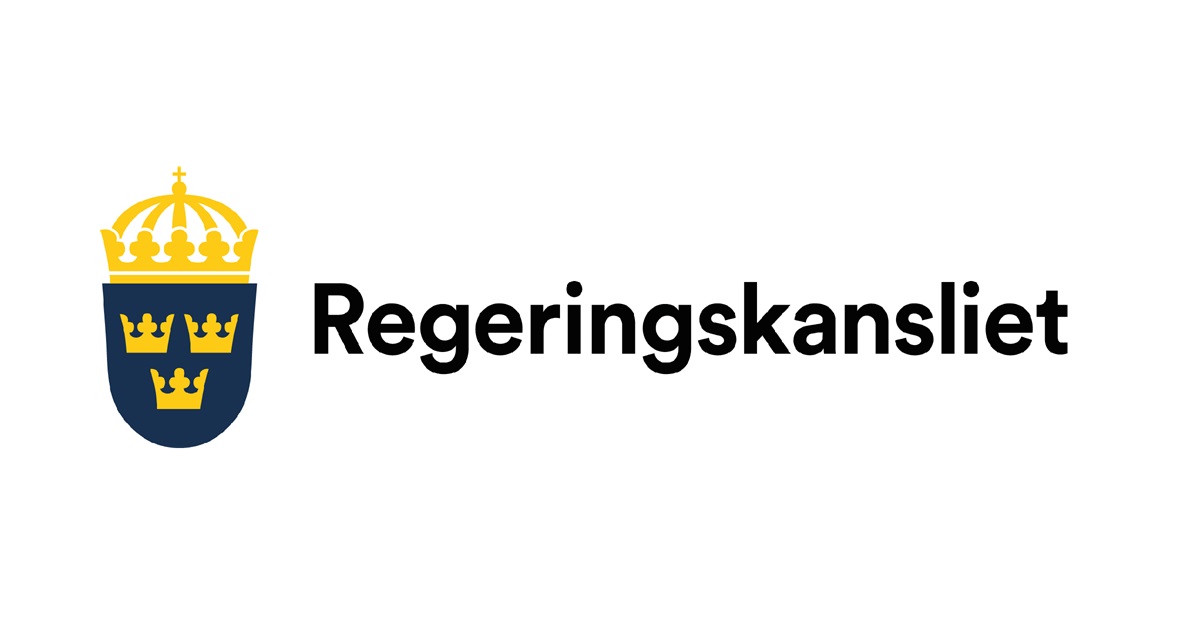
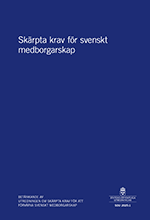
Also partially immigration-related since it touches upon citizenships: a special committee finalized its report about some foundational laws. The committee proposes, among other things, that freedom of association could be restricted for criminal associations, that citizenship could be revoked in certain cases and that the right to abortion should be protected in the constitution (Sweden doesn't really have a constitution, I'll write about it another time, but there are some laws which are intentionally harder to change). Revoking of the citizenship is proposed to be made possible for dual nationals who have obtained their Swedish citizenship through false or incomplete information or unfair practices such as bribery, and for those who have committed crimes that seriously threaten Sweden's security or crimes that fall within the jurisdiction of the International Criminal Court.
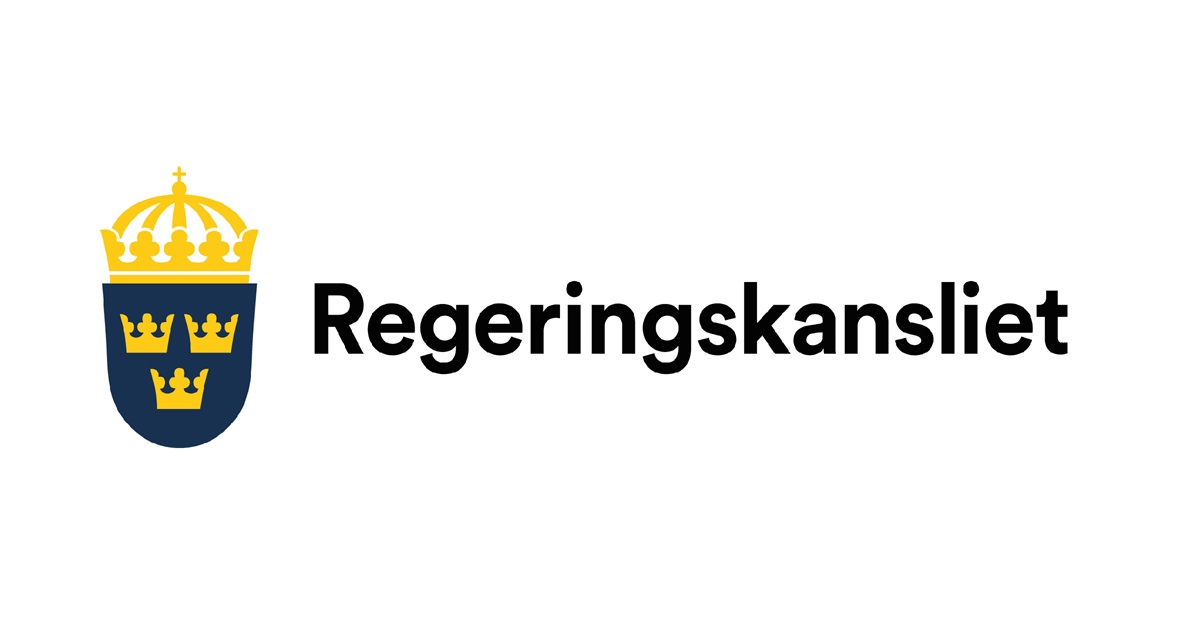

In other news, Läkartidningen has published a couple of articles about the paths to Swedish medical license for international medical graduates. The link below goes directly to the English summary of the article describing those paths:
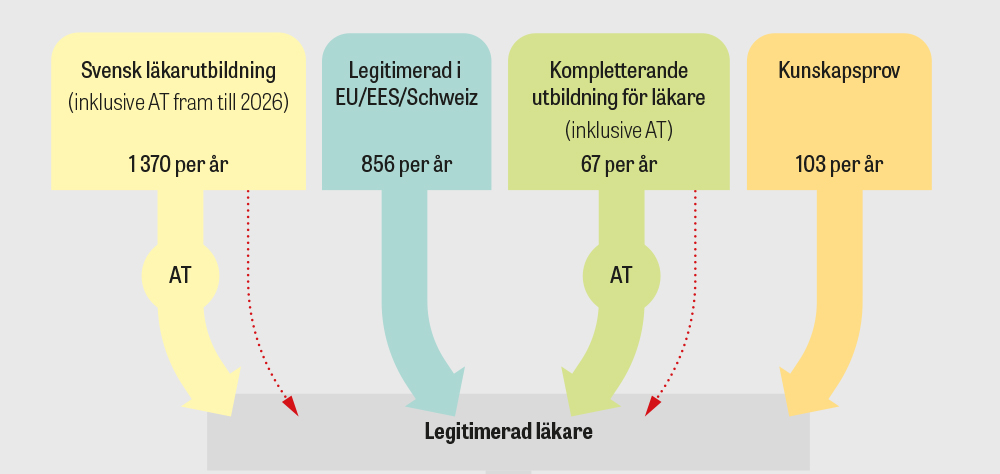
The second article is a debate article and it argues that the current paths are too slow and too hard, as well as too demanding in comparison to the rest of the Nordics, and changes should be made so that Sweden can benefit from the available expertise in the face of doctor shortages.

Reports and data
A global provider of independent insights has published a report on Sweden's mobile networks speed and coverage. TL;DR: Telia is a winner in both general coverage in 5G coverage in particular, but its lead over Telenor and Tele2 is not that huge. Telenor won at average download speeds (both generally and for 5G). As for the average upload speed, it was Tre that won in 5G and shared the win with Telia in general. Telenor has the most awards overall.

The Journal of International Migration and Integration has published a study on the connection between immigration and crime in Swedish municipalities. From the abstract: “Immigrant population prevalence had little association with high rates of reported violent crime. The average association between immigrant population prevalence and violent crime rates calculated from all municipalities was also weak and non-significant”.
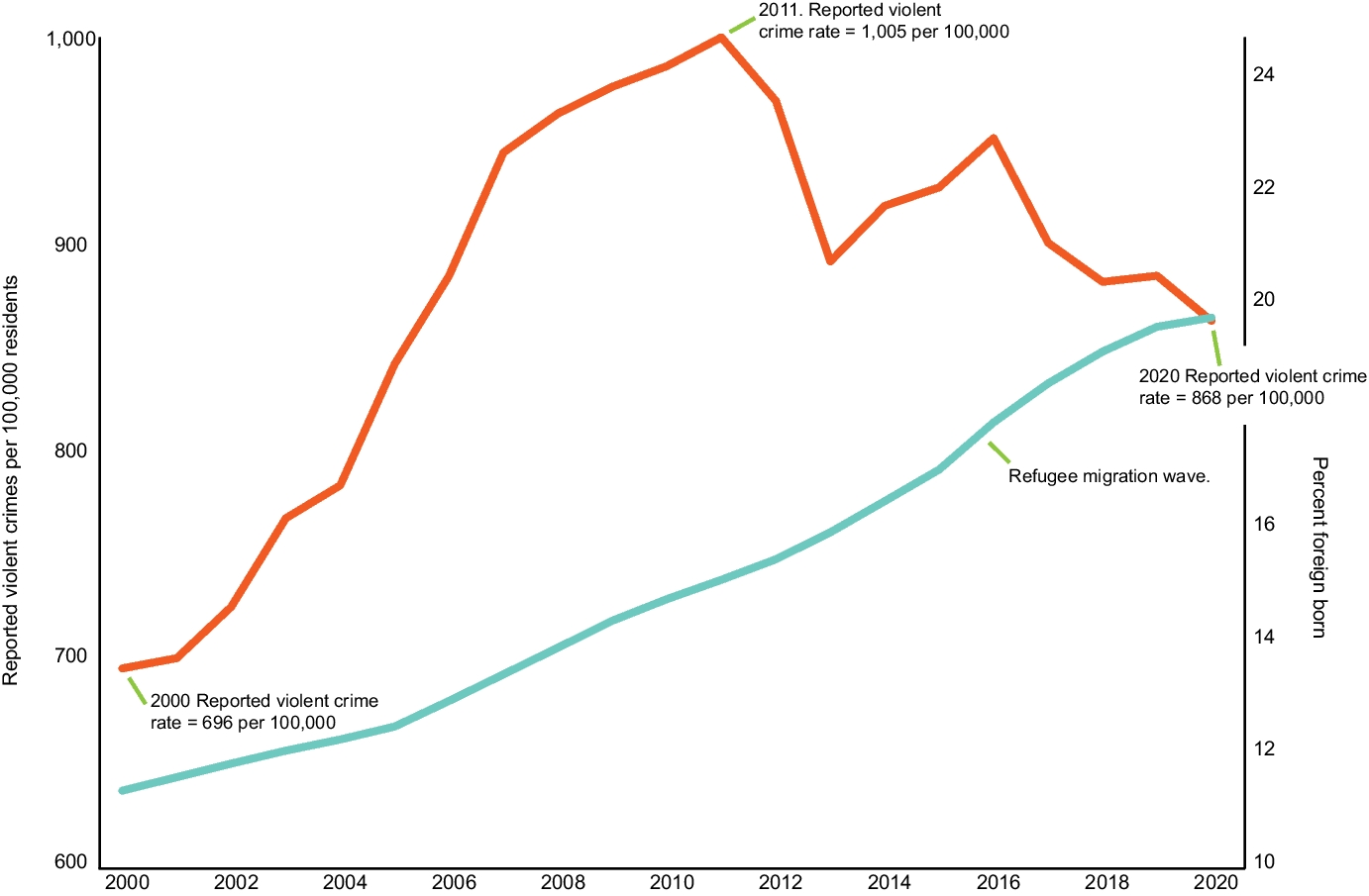
Consumer news
Recall of tahini and halva from Seval (risk of salmonella). This includes tahini with best before date between the 8th of January 2026 and the 20th of February 2026, Halva Vanilj with best before date of the 18th of January 2026, and Halva Pistage with the best before date of the 23rd of January 2026.

Starting in June 2025, the electricity prices will be set four times per hour and not once, which will probably affect the available price plans.
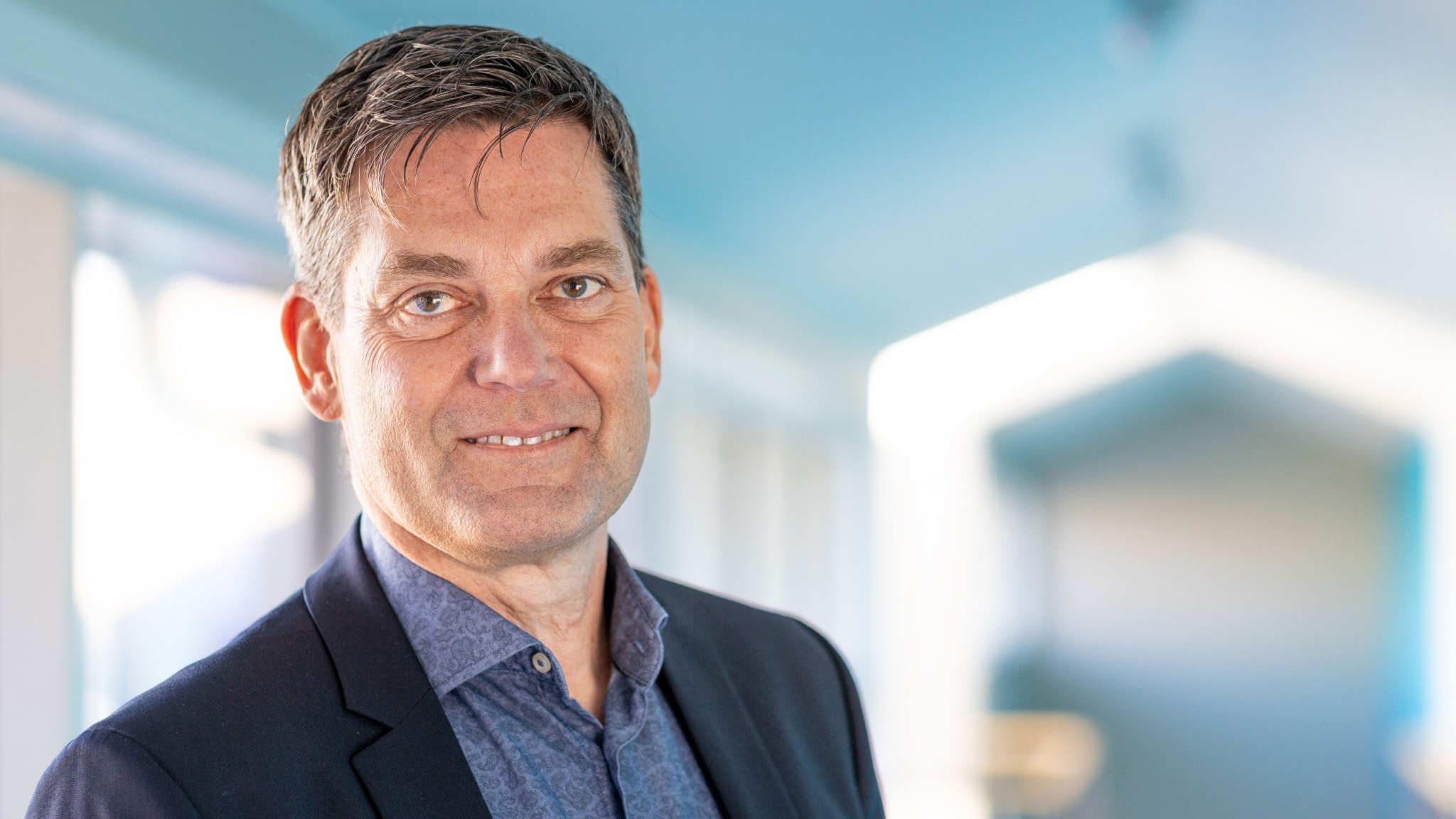
In the second half of 2025, pant (the deposit on PET and aluminum beverage containers) will increase: from 1:- to 2:- on aluminum cans and small PET bottles, and from 2:- to 3:- on large PET bottles. The goal is to encourage people to panta (recycle cans and bottles in the special machines) even more. Right now it's almost 90% of them that get recycled, and the growth has been steady but slow. It is not the date on the calendar but the label on the can or bottle that decides the price, so there's no point in stocking up.

Starting the 7th of January, buying on Tradera became more expensive. The köparskydd (buyer's protection) which used to be an optional add-on has become mandatory. Tradera says this is to make the marketplace safer. Others have speculated this might be related to Tradera's plans for IPO next year and their possible desire to get a higher valuation. One way or another, it's 2:- + 5% of the order price, capped at 499:-.
A new scam: calls claiming to be about books reserved at the library. Library! Nothing sacred for some people. Anyway, the scammers usually knew the name and personnummer of the person they called to increase trustworthiness, and claimed that a reserved book couldn't be delivered and therefore a fine must be paid.
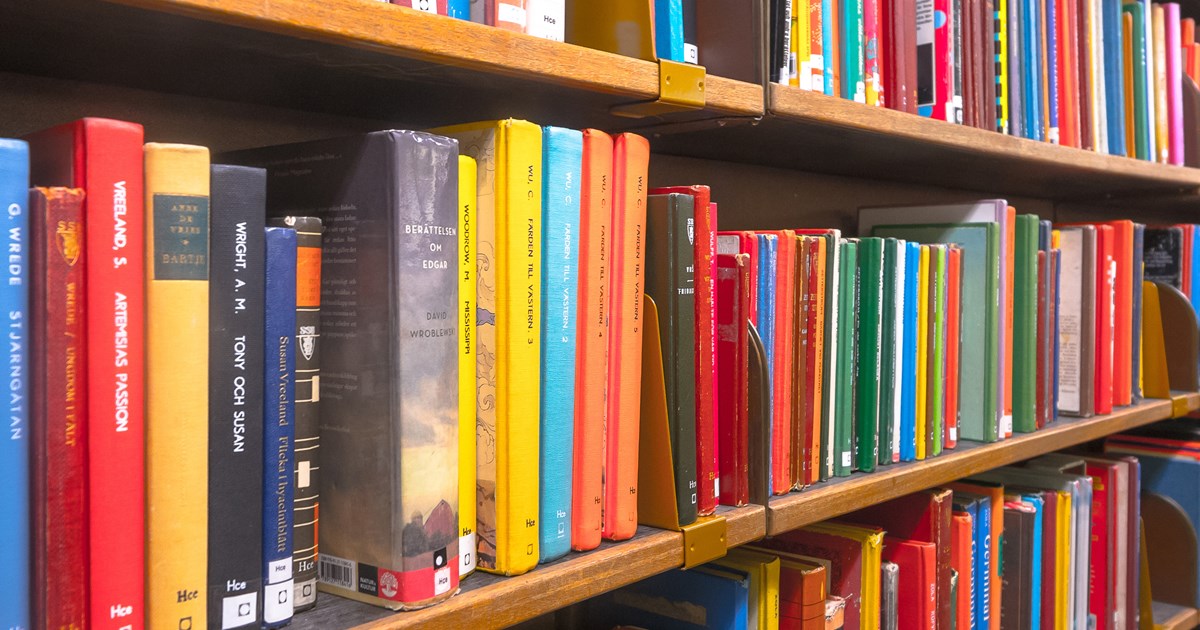
Since the 1st of January 2025 private individuals need a permit to buy and use corrosive drain cleaners. This is done to reduce the yearly accidents in which both children and adults get serious injuries. There are recommendations (in English) on what to do instead to both prevent and deal with clogged drains:

Other news
The fees for missing a medical appointment continue to rise, with the majority of regions taking more money from the patient for a missed visit than for one they attend. There's also a big variability in prices overall: in eight regions, a visit to the emergency room now costs between 500 and 620 SEK while in Gävleborg, Jönköping and Kalmar it costs SEK 250.

If you're in Bräcke between now and the 10th of April, you might get a chance to wave and smile at a police drone. Bräcke, with its ~1.5k of population, is going to be watched with drones 24/7 for three months starting January 10th.
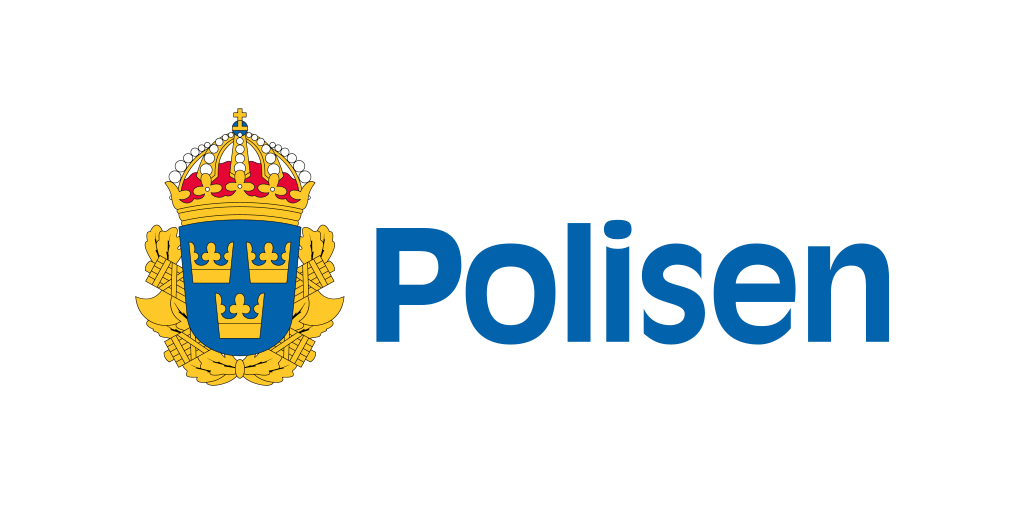
Digitalization news
The Gävleborg region tried rolling out the new system for patientsi medical journals. It went about as good as VGR's attempt with another system: Gävleborg also had to fall back to pen and paper to ensure patient safety.
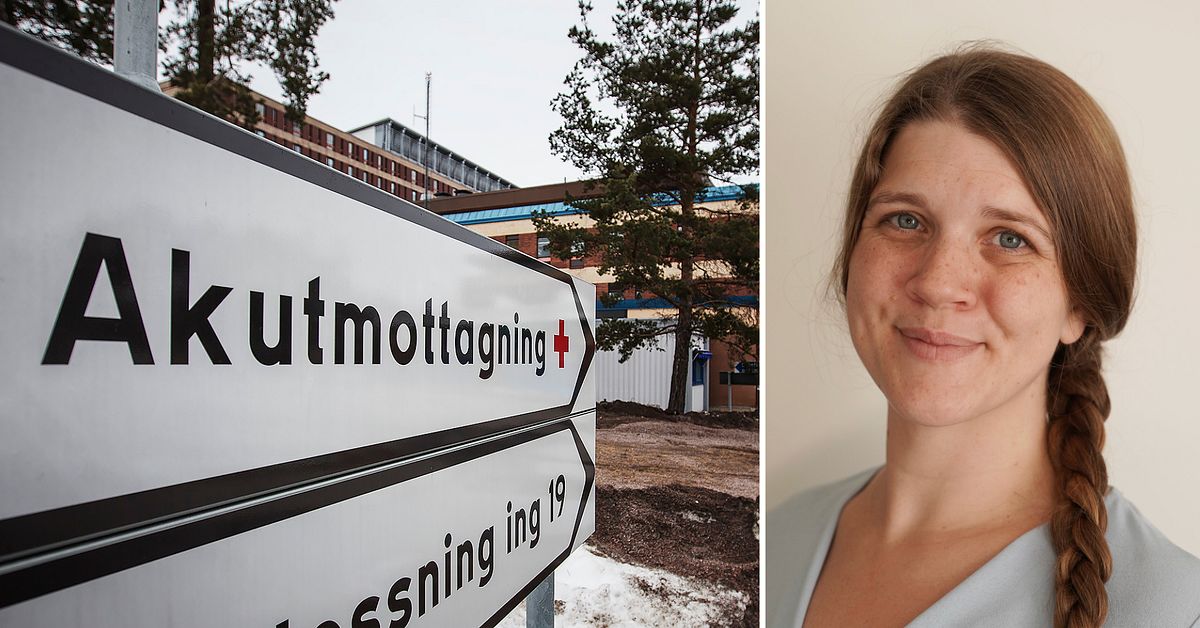
Meanwhile in Göteborg, a data leak has been discovered in a routine control of the city's IT system: 37000 people's personal details were open to the internet.
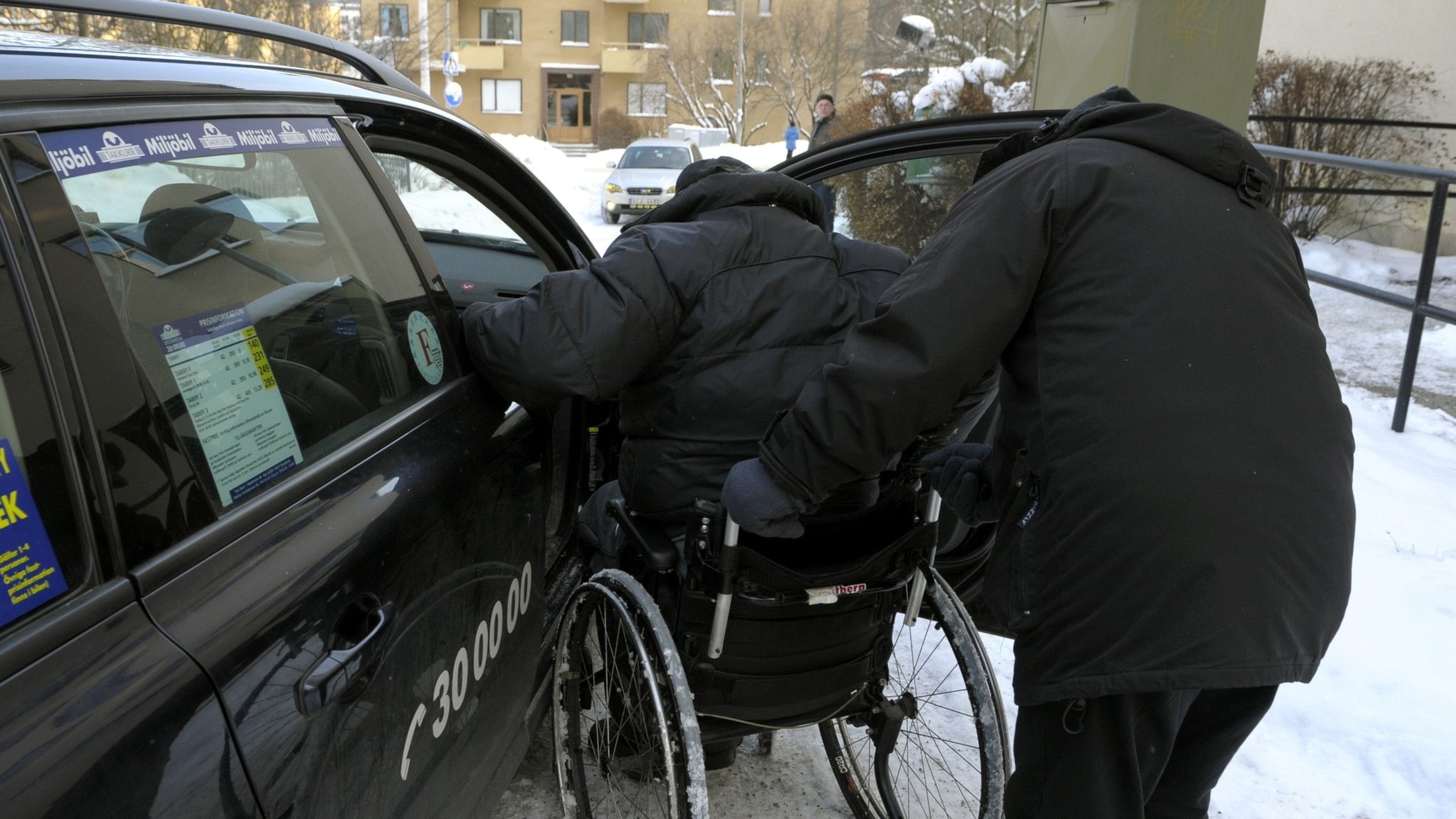
Good news
The hospital in Blekinge was the first in Sweden to use a new type of artificial heart valve. What makes this valve cool is that it might be possible to wear it for life without having to replace it, and also that it's suitable for smaller patients because of its size.
